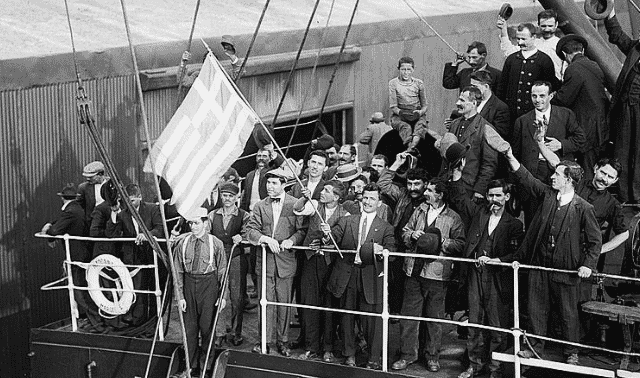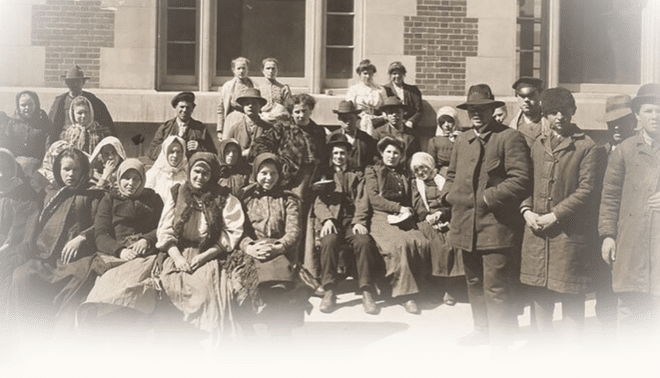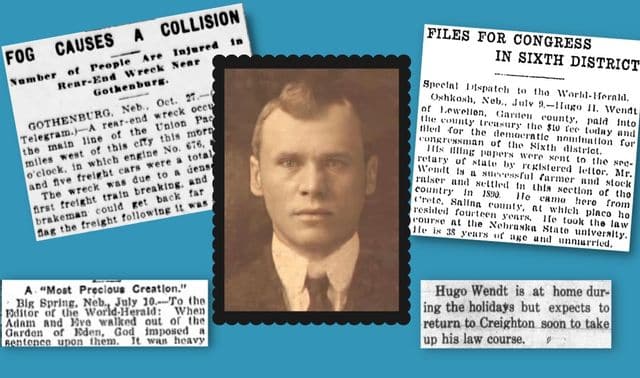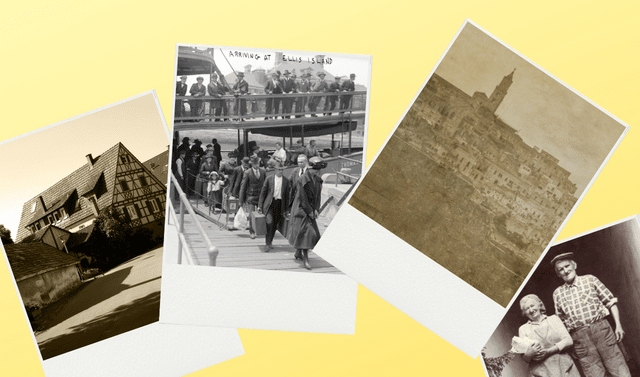Sign up for the Family Tree Newsletter Plus, you’ll receive our 10 Essential Genealogy Research Forms PDF as a special thank you!
Get Your Free Genealogy Forms
"*" indicates required fields
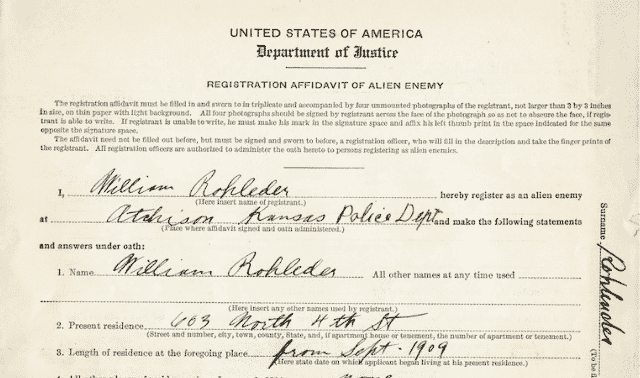
During times of war, some immigrant residents of the US were considered enemy aliens. Those who still had citizenship in a country with which the US was at war were deemed enemy aliens. During the War of 1812, British subjects were enemy aliens. During World War I (WWI), German, Austrian, Hungarian, Bulgarian, and Turkish nationals were enemy aliens (as their home countries formed the Central Powers). During World War II, Italians, Germans, and Japanese were enemy aliens (including quite a few of my Italian ancestors). Some American-born of German of and Italian descent and all Americans of Japanese descent were considered enemy aliens in WWII. Alien enemies were generally subject to strict rules, curfews, increased scrutiny, and often, some type of registration.
The case study of William Rohleder
William Rohleder immigrated to the US from Germany in 1909. He went straight to Atchison, Kansas, where his aunt and uncle lived. He worked, variously, as a shipping clerk for a harness company, a clerk, secretary, and bookkeeper for a saddling company, and eventually, he was the proprietor of R-K creamery. As a German citizen, William was an enemy alien during WWI. His draft registration card even specified him as an “alien enemy,” but one who “has attitude to be friendly to the United States.” He attempted to naturalize in 1920, but his petition was denied because he supposedly claimed exemption from the draft on account of his enemy alien status. He married about 1925, gained one step-son, and eventually had two sons with his wife, Clara. He successfully petitioned to naturalize in April 1937.
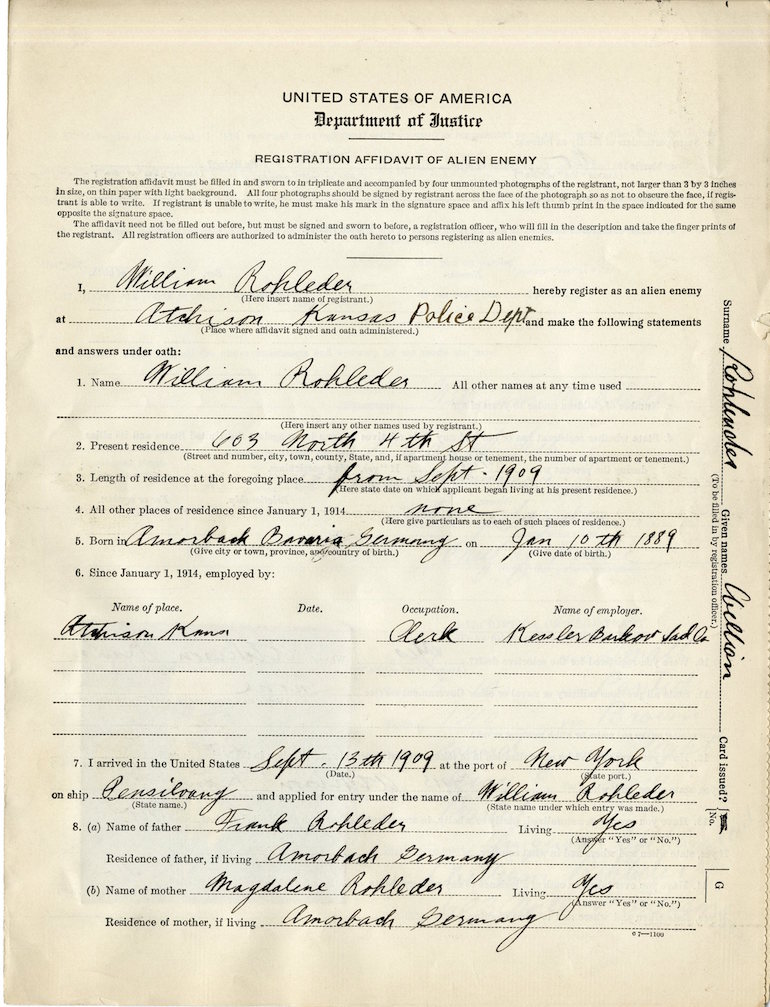
Official alien
During WWI, enemy alien men were required to file a “Registration Affidavit of Alien Enemy”, and enemy alien women were required to file a “Registration Affidavit of Alien Female.”
These registration forms provide a genealogical goldmine of information – birthdate, birthplace, employment information, date of arrival, parents’ names and residences, names and birthdates of spouse and children, former military service, whether any relatives were fighting against the US, a physical description, a full set of fingerprints – and a photo!
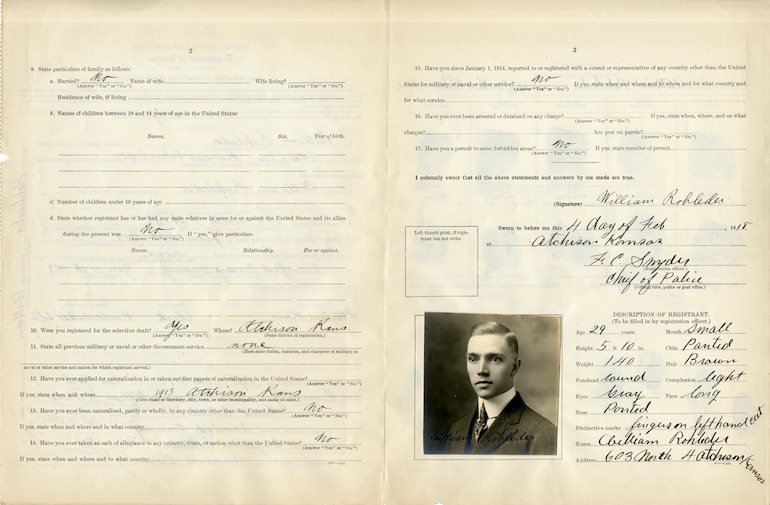
Scattered records
Unfortunately, many of these records no longer exist. Those that do are scattered between the regional branches of the National Archives. Records for enemy alien residents of Kansas, North Dakota, Minnesota, eastern North Carolina, Phoenix, San Francisco, Shreveport, Allen County (Indiana), and Frankfort (Kentucky) are all known to exist, and there are likely more to be found.
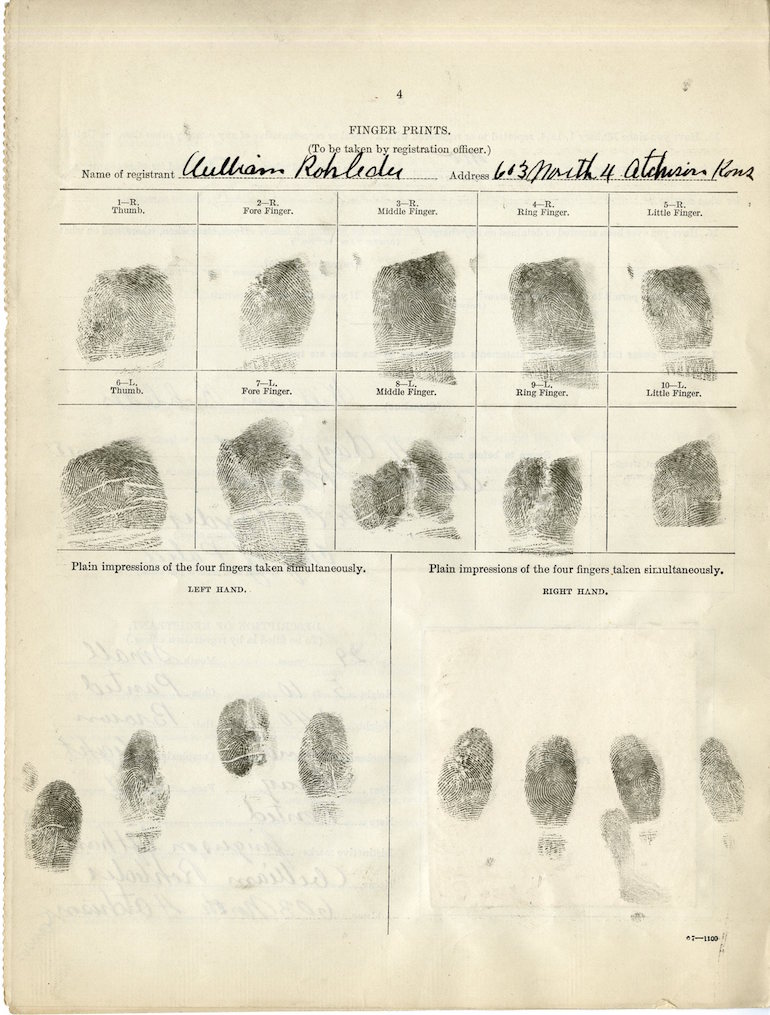
An official birthplace
Lucky for us, William’s Registration Affidavit of Alien Enemy is extant and available digitally via the National Archives’ catalog (as are most from Kansas). It specifies his birth as in Amorbach, Bavaria, Germany, on 10 January 1889.
While some other US documents do also give the place of origin for William Rohleder (including the 1930 census – a real rarity!), none are so informative as his WWI enemy alien registration affidavit. I’m keeping my fingers crossed these records from the many states currently missing from the line-up may one day be found!
ADVERTISEMENT

